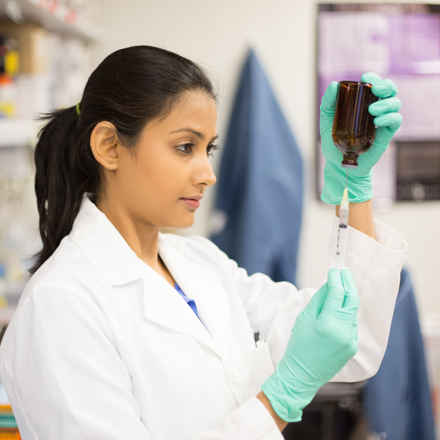Developing new anti-complement drugs for dry AMD

Dr Wioleta Zelek, Cardiff University - £120,000
This project is looking to find drugs that can stop the overactive cycle of inflammation, which leads to cell damage in dry AMD.
What is the problem?
It is recognised that the complement system and inflammation play a large role in the development of AMD. The complement system is a necessary part of the body’s natural defence against infection. However, in AMD this system can become overactive and create a cycle of inflammation, leading to cell damage.
What are they doing?
This project is looking at different aspects of the complement system to try to develop new treatments. In particular, they are trying to stop a part of the system called the membrane attack complex (MAC) which kills infected cells, by creating holes in the cell. These holes in the infected cell lead to leakage of the cell’s contents. This can, in some cases, lead to further inflammation and an over-activation of the MAC complex and may drive AMD progression.
How can this help?
This work will help assess whether drugs that may be able to stop MAC formation can stop or slow AMD progression. Researchers will also test these drugs to see whether they can be given without the need for injections into the eye.
See our other projects
Since 1987 the Macular Society has invested around £10 million in over 100 research projects.
Explore more research
Beating macular disease through funding medical research and improving the lives of those living with macular disease.
Get the latest research news from the Macular Society
To hear about life-changing research and treatments, subscribe to our monthly enewsletter today. Together we can Beat Macular Disease.
Sign up to our free email newsletter



